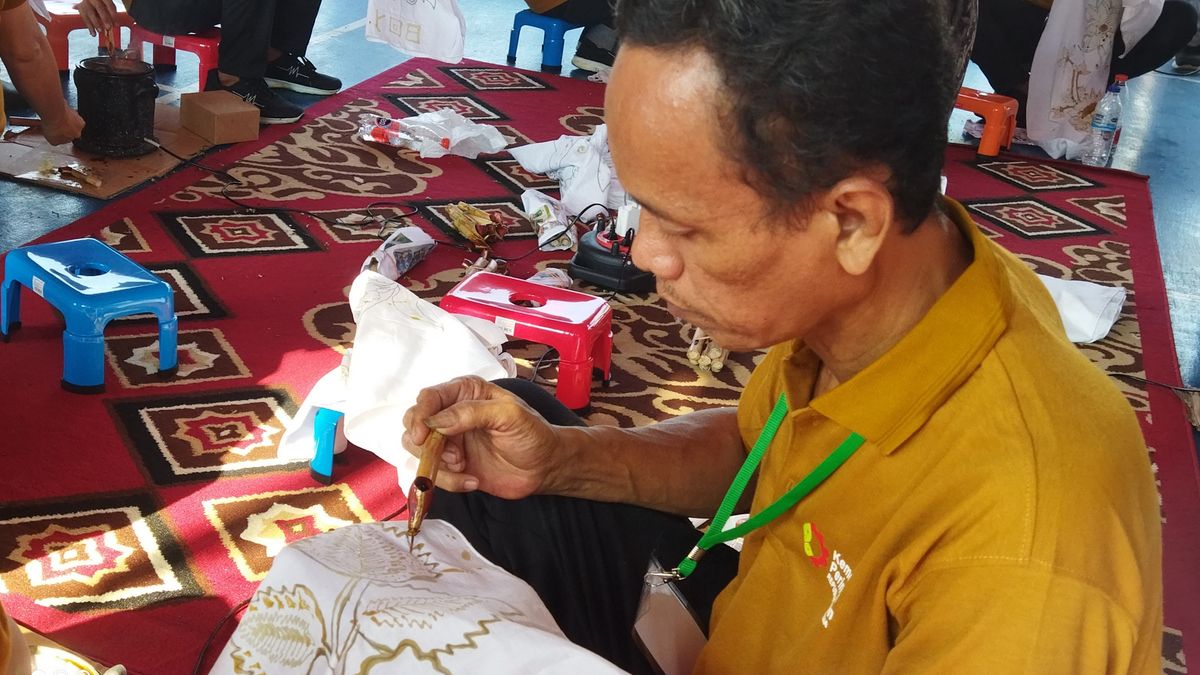JAKARTA - A total of 25 inmates of the Class I Cipinang Penitentiary participated in batik activities on Thursday, September 5.
This training is carried out so that prisoners after being free get skills to continue their lives in the community, and do not take actions that violate the law.
"At first I couldn't, but I just tried to study for two days. This is the first time I'm batik. At first it was difficult, now it's running smoothly," said one of the drug convicts with the initials IK to reporters, Thursday, September 5.
In addition, cloth batik activities using the writing batik method and stamps made directly by dozens of inmates will also be exhibited at the commemoration of National Batik Day, next week.
"It must be enjoyed (triggering), this activity is looking for busyness," he said.
The man who was sentenced to 7 years in a drug case admitted that he would be released from prison next year.
"Next year I will go home (free from prison). I hope this batik skill can be applied outside later after release," he said.
SEE ALSO:
Head of Cipinang Class I Prison, Enget Prayer Manik, said that batik training was the result of collaboration with the Indonesian Batik Foundation and the Ministry of Industry.
"This is an effort to strengthen the structure of the national industry by creating new entrepreneurs and increasing the competitiveness of IKM (small and medium industries)," Enget told reporters, Thursday, September 5.
The plan is that in the near future, the results of the written batik and special stamps of the Cipinang Class I prison will be marketed to the public.
"This is also the embodiment of the three main pillars in building prisoners into independent humans. The three pillars are the community, correctional officers, and prisoners," he said.
The English, Chinese, Japanese, Arabic, and French versions are automatically generated by the AI. So there may still be inaccuracies in translating, please always see Indonesian as our main language. (system supported by DigitalSiber.id)
















